I have a lot of memories about the Beijing Beijing
The city's climate is harsh, characterized by hot, humid summers due to the East Asian monsoon, and cold, windy, dry winters that reflect the influence of the vast Siberian anticyclone. Average temperatures in January are at around -7 to -4 °C, while average temperatures in July are at 25 to 26 °C. Annual precipitation is over 600 mm, with 75% of that in summer.
Minus 7 Celsius is 20 degrees Fahrenheit. And keep in mind, those are averages. We were at least that cold the whole time I was there, if not colder. I’m not stupid…I knew it would be cold. Both The Second Mrs. Pennington (ed: "PK" in the photo titles) and I brought clothes appropriate for the weather, as we anticipated we’d be doing more than a bit of outdoor sightseeing. I assumed the Ministry of Rails (MOR) offices would be comfortable (read that: heated), but I was wrong. But I’m getting ahead of myself.
To pick up the tale…
I scheduled our trip so TSMP and I would have one full day to adjust and work off the jet lag after arriving in Beijing Beijing
 Our first full day in
Our first full day in TSMP and I spent our first day hanging around Tiananmen Square and environs. The square is huge, reputedly the largest open air square in the world. I believe it. We spent the entire day there, doing things like watching the changing of the guard at Mao’s tomb, walking along the moat of the Imperial Palace, scoping out the Peoples Architecture, and wandering around the shopping areas adjacent to the square. We were struck by how friendly the people were and by the large numbers of men in uniform…seemingly every third male we saw was in a uniform of one sort or another. English signage, as may be expected, was in short supply. This wasn’t as big a problem as you might think, because TSMP discovered in very short order that she could read Chinese ideograms quite easily, and that those ideograms were roughly equivalent in meaning to the same, or similar, Japanese kanji. We were also equipped with a copy of Fodor’s Beijing
The day was punctuated with quite a few encounters with English-speaking Chinese, and every single one of our encounters was pleasant and very friendly. With one exception. TSMP attempted to strike up a conversation with a very young, very tall (well over six feet) PLA soldier during the changing of the guard ceremony at Mao’s tomb. He simply glared at her the whole time, acknowledging her presence but refusing her attempts to talk to him. I was decidedly uncomfortable during the whole exchange, which only lasted a couple of minutes. But, hey…that’s her, and that’s her style. She’s a button-pusher from the word Go.
 We returned to the hotel in the late afternoon, took a nap, and then went downstairs for dinner. I noticed the type of restaurants have changed at the Shangri-La over the last 15 years. We had dinner our first full night at the Shangri-La in a wonderful French restaurant that’s no longer there. And the cuisine was remarkable, what with a resident French chef overseeing the whole affair. The food was every bit as good as that served in any restaurant in
We returned to the hotel in the late afternoon, took a nap, and then went downstairs for dinner. I noticed the type of restaurants have changed at the Shangri-La over the last 15 years. We had dinner our first full night at the Shangri-La in a wonderful French restaurant that’s no longer there. And the cuisine was remarkable, what with a resident French chef overseeing the whole affair. The food was every bit as good as that served in any restaurant in  I had been given a contact number to call upon my arrival in
I had been given a contact number to call upon my arrival in Ten minutes or so later we arrived. The MOR’s offices were in a low, two-story concrete block building surrounded by a high masonry wall with a steel sliding gate, attended by an armed guard. The offices appeared to be in a residential neighborhood and had no identifying signs (or anything else) to indicate what the building might be. The interpreter, a young man by the name of Mr. Wen, explained that the offices were MOR’s engineering facility. We went into the building, walked down a long, dimly-lit corridor, up a staircase to the second floor, down another corridor, and into a medium-sized conference room, where there were about five people waiting. We made our introductions, passed out business cards, and I made the ceremonial gift presentations (small boxes of Godiva chocolates), part of the ritual of doing business in China
At Work
It was then I noticed that everyone in the room was dressed in parkas and were wearing those fingerless gloves one sees here and there. And that it was cold, very cold, in the room. When I say “cold,” I mean it was 40 degrees F inside, while the outside temperature was in the 20s. You could almost, but not quite, see your breath as you breathed in and out. I had taken off my overcoat when I arrived, and it wasn’t too very long before I put it back on, to many smiles around the table. That morning was the first and last time I went to the office in “appropriate business attire,” to wit: suit and tie. My MOR counterparts were dressed in heavy sweaters and parkas, and although I didn’t bring a parka, I had several sweaters and warm wool casual pants. I dressed accordingly for the remainder of the week. But I was still cold the whole time. I drank a lot of tea over the course of the next week, using my teacup as an impromptu sort of hand warmer.
MOR Staff - Male Engineer, Two Female Engineers, the Chief Engineer and Wen, My Translator
I’ll not go into detail about the business. Suffice to say that my days were spent doing a tedious, but necessary, line-by-line edit of the Request for Proposal. We edited the RFP as a group, and my primary interactions were with the previously mentioned mid-30s female engineer, an older male engineer, and our interpreter. We were joined occasionally (at least once a day) by the Chief Engineer, a man in his mid- to late 60s, who was obviously idolized by his subordinates. I’ve never seen another senior manager given such deference and obvious admiration by his or her subordinates, ever. I’m sure there’s some sort of back-story there, but I never learned what it was. At any rate, I’d arrive at the MOR offices every day just after 0900, work until 1230 or so, return to the hotel for a two-hour lunch break, go back to the office and work until 1800 or so. Nights were spent incorporating the day’s edits into the master document, which I had on my laptop. Rinse, repeat…until we were done.
Wen and Me in Tiananmen Square
Wen (“Please. Just call me Wen, not Mister Wen”) and I developed a close and friendly relationship over the course of the week, primarily because there was not much of a language barrier, and also due to the fact that we spent a lot of time together. Wen would arrive at the hotel by bicycle every morning about a half-hour before the car. I discovered this the second day when I saw him waiting outside the hotel, in the cold. He refused to come into the hotel, even after much pleading and persuading on the part of TSMP and myself. But we finally convinced him to join us inside, and on the third day we talked him into having breakfast with us in the hotel restaurant. That may or may not have been a smart move, as Wen was mildly embarrassed because he had never used a knife and fork before. We solved that situation by asking the waiter for chopsticks, which were delivered with a mild look of disapproval on the part of the waiter. Wen explained to us that “ordinary” Chinese were heavily discouraged from mixing with foreigners and were generally prohibited from entering the western hotels, except on business. We convinced him that it was indeed business when he joined us in the hotel, and he finally, but reluctantly agreed. TSMP and I would pick up quite a few tidbits of information like that from Wen as he became more comfortable with us.
We learned that Wen was from a small village in the south of China Beijing
My, but I do go on, eh? There’s a lot to say about this trip, but I don’t want to write the Not-So-Great American Novel while doing so. One more installment and I think I’m done. More tomorrow.






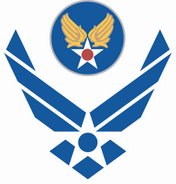

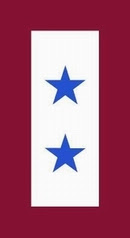
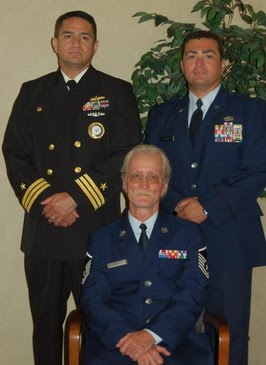.jpg)
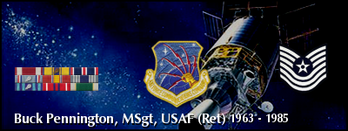

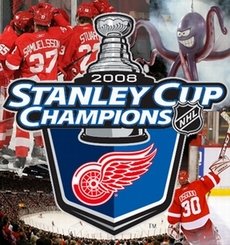

“Yes. She wanted a car! Can you believe that? She actually wanted a car!” TSMP changed the subject…
ReplyDeleteLOL! That is hysterical.
LOL! That is hysterical.
ReplyDeleteSad, too, in a way. It's instructive to note what other peoples' expectations are out of life. Not that I'm all that materialistic, but I AM thankful for the Green Hornet, among many other things. As I said in my Thanksgiving post: "I'm thankful God made me an American!"
But...given the changes that have taken place in China over the last 15 years, I'd wager there's a more than even chance Wen's ex-girlfriend just might be driving around Beijing today.
The hysterical part was TSMP changing the subject. From your stories, it is hard to imagine her being speechless about anything, and I was picturing this as pretty close to that.
ReplyDeleteLaurie said: The hysterical part was TSMP changing the subject.
ReplyDeleteGomen...I obviously mis-interpreted you, and I apologize for that. You're right though, she was rendered speechless, and that was unusual. I was somewhat speechless, myself! ;-)
Lately, I have been on a reading frenzy. I just finished a mystery novel and started another one. The second book has not been all that thrilling so I started another book. Last night as I got in bed to read, I grabbed one of the books. In my mind I was thinking, "Okay is this the one with the couple in China? Oh wait, that is Buck and TSMP's story." I think I have too much going on in my head.
ReplyDeleteLOL! Lou, that is funny. I have done that before. But I haven't been reading books much these days so it hasn't happened lately.
ReplyDeleteI agree with Laurie, Lou: Too funny!! And I haven't been doing much reading of late, either...just on-line stuff, and nearly all politics, at that. Booooring!
ReplyDelete